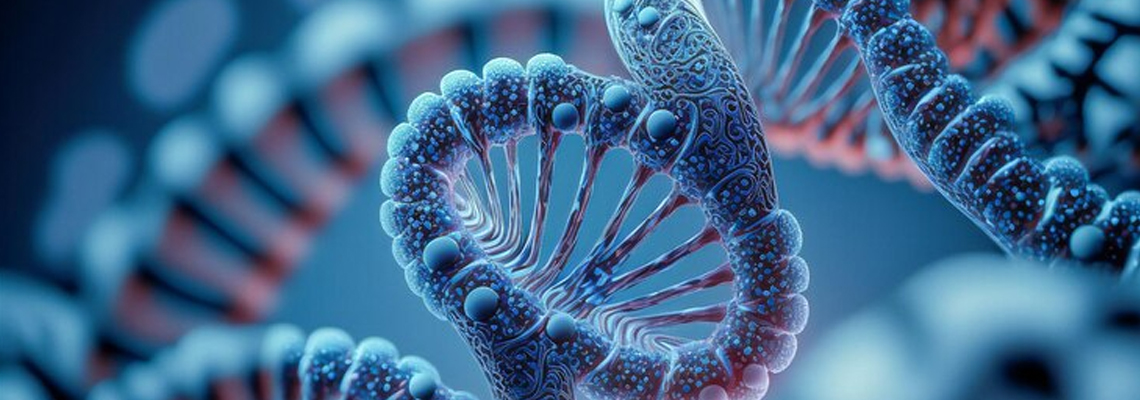What is Lipoprotein Lipase (LPL)
Lipoprotein Lipase (LPL) is an enzyme that helps the body handle fats in the blood. It sits on the walls of small blood vessels in places like muscle, fat tissue, and the heart. LPL breaks down large fat particles, called triglycerides, into smaller parts called fatty acids. These fatty acids can be burned for energy or stored for later use. Without enough LPL, fats can build up in the blood, which can harm the heart and other organs.
Basic role in the body
Lipoprotein Lipase (LPL) sits on the walls of tiny blood vessels. These vessels are in muscles, fat tissue, and the heart. LPL catches fat-rich particles called triglycerides. It breaks them into smaller parts called fatty acids. The body then uses these fatty acids for fuel or stores them.
Why the body needs LPL?
The body needs LPL to control fat levels in the blood. High fat levels can block blood flow and harm organs. LPL helps move fats to where they can be stored or burned. It also works with other enzymes to manage energy needs all day.
How Lipoprotein Lipase (LPL) Works?
Lipoprotein Lipase (LPL) breaks down triglycerides in the blood into fatty acids. These fatty acids move into cells, where they are used for energy or stored. This process happens mainly in muscles, fat tissue, and the heart to manage body energy.
Breaking down fats for use
LPL acts like a tool that cuts large fat molecules into smaller ones. These smaller fats can enter cells. Inside the cell, they turn into energy. This energy powers daily activities and supports growth. Without LPL, fats stay in the blood and cause health risks.
Helping cells get energy
When you eat food with fat, LPL helps your cells use it. Fat from food travels in the blood in large packages. LPL opens these packages. The contents go into cells, where they become energy. This process works in muscles, fat tissue, and the heart.
Main Functions of Lipoprotein Lipase (LPL)
Lipoprotein Lipase (LPL) lowers blood fat, supports energy use, and works with other enzymes. It helps store or burn fats, keeping blood vessels healthy and reducing the risk of heart-related problems.
Keeping blood fats at safe levels
LPL stops blood from having too much fat. High blood fat can lead to heart disease or stroke. By breaking down fats, LPL keeps levels within a safe range. This helps protect blood vessels and organs.
Working with other enzymes
LPL works with enzymes like hepatic lipase and hormone-sensitive lipase. These enzymes manage fats in different body parts. Together, they keep energy balanced. They also help the body switch between storing and burning fat.
Lipoprotein Lipase (LPL) and Health
Lipoprotein Lipase (LPL) is closely linked to overall health, especially heart and metabolic well-being. Healthy LPL activity helps keep triglyceride levels in a safe range, lowering the chance of artery blockages that can cause heart attacks or strokes.
Link to heart health
Healthy LPL activity lowers the risk of blocked arteries. Blocked arteries can cause heart attacks. People with low LPL may have high blood fat levels. This raises heart disease risk. Studies show that strong LPL function supports heart health (NIH source).
Link to metabolic health
LPL helps the body use energy well. Poor LPL function can cause high blood fat and poor sugar control. This may lead to metabolic problems like type 2 diabetes. Good LPL activity supports balanced energy use in the body (CDC source).
Factors That Change Lipoprotein Lipase (LPL) Levels
Diet, exercise, hormones, and health conditions can change Lipoprotein Lipase (LPL) levels. Healthy eating and regular activity raise LPL, while poor diet, hormonal shifts, obesity, or diabetes can lower its activity, affecting fat control and energy use.
Diet and lifestyle habits
Eating too much sugar and unhealthy fat can lower LPL. Regular exercise can raise LPL levels in muscles. A balanced diet with healthy fats supports LPL function.
Hormonal changes
Hormones like insulin affect LPL activity. High insulin from frequent snacking may lower LPL in fat tissue. In fasting, LPL shifts from fat tissue to muscle, to help energy use.
Medical conditions
Some conditions, like obesity or diabetes, can reduce LPL function. Certain rare genetic issues can remove LPL activity fully. This can lead to very high blood fat from birth.
Problems Caused by Low Lipoprotein Lipase (LPL)
Low Lipoprotein Lipase (LPL) can cause high triglycerides, leading to blocked arteries, pancreatitis, and heart disease. In rare genetic cases, it starts early in life, causing severe fat buildup in the blood.
Genetic deficiency
Some people are born without working LPL. This is called familial LPL deficiency. It causes high triglyceride levels in the blood. Symptoms may start in childhood and include stomach pain and skin growths.
Impact on fat levels in blood
Without enough LPL, triglycerides build up in the blood. This makes blood look milky. High triglycerides can cause pancreatitis, a painful and dangerous condition.
Ways to Support Lipoprotein Lipase (LPL)
Regular exercise, balanced meals with healthy fats, and limiting added sugars can support Lipoprotein Lipase (LPL) activity, help control blood fats and improve overall energy use in the body.
Healthy eating patterns
Eating fewer refined carbs and more healthy fats supports LPL. Foods like fish, nuts, and olive oil help. These fats are easier for the body to use and store safely.
Physical activity and movement
Regular activity can raise LPL levels in muscles. Even short walks after meals can help. Physical work tells muscles to use more fat for fuel.
Lipoprotein Lipase (LPL) in Medical Research
Medical research on Lipoprotein Lipase (LPL) explores gene therapy for rare deficiencies and medicines to raise its activity, aiming to lower triglycerides, protect heart health, and improve fat use in common metabolic diseases.
New studies on LPL
Research is testing gene therapy for people with no LPL. These studies aim to give the body the LPL gene so it can make the enzyme. Early results are promising for rare cases (FDA source).
Possible medical uses
Doctors are looking at ways to boost LPL in common diseases. Medicines that raise LPL could help people with high triglycerides. They may also lower heart risk in some patients.
LPL Facts and Data
| Function of LPL |
Details |
Source |
| Breaks down triglycerides |
Cuts fats into fatty acids for energy |
NIH |
| Works in many tissues |
Found in muscle, fat, heart |
NCBI |
| Affects heart health |
Lowers risk of artery blockages |
CDC |
| Can be raised by exercise |
Increases in active muscles |
PubMed |
| Falls in some diseases |
Lower in obesity and diabetes |
WHO |
Frequently Asked Questions (FAQs) for Lipoprotein Lipase (LPL)
1. What is Lipoprotein Lipase (LPL)?
LPL is an enzyme that breaks down fats in the blood. It turns large fat molecules into smaller ones that the body can use or store. Without LPL, fats can build up and harm health.
2. Where is LPL found in the body?
It is found on the walls of small blood vessels in muscle, fat tissue, and the heart. These locations allow it to process fats moving through the blood.
3. How does exercise affect LPL?
Exercise raises LPL in muscles, helping them burn more fat. Even light activity can improve LPL function, making it easier for the body to control blood fat levels.
4. Can diet improve LPL levels?
Yes, a diet rich in healthy fats and low in added sugar can help. Fish, nuts, and seeds are good choices. These foods give fats that are easier for the body to process.
5. What happens if LPL is too low?
Low LPL causes high blood triglycerides. This can lead to blocked arteries, pancreatitis, and other health risks. In rare cases, it is due to a genetic problem from birth.
6. Is LPL linked to diabetes?
Yes, poor LPL function can lead to higher blood fat and poor sugar control. Both issues increase the risk of type 2 diabetes.
7. Can LPL be increased with medicine?
Some new medicines aim to raise LPL levels. These are in research stages and may help people with high triglycerides or rare genetic issues.
8. Is LPL tested in regular blood tests?
LPL is not part of normal blood tests. Doctors usually check triglyceride levels instead, which can show if LPL might not be working well.
Lipoprotein Lipase (LPL) is vital for safe fat use in the body. It protects the heart, supports energy use, and prevents dangerous fat buildup. At AARMEDICA, we are committed to providing accurate medical knowledge backed by trusted sources. For expert support or to learn about our medical solutions, contact us today.



